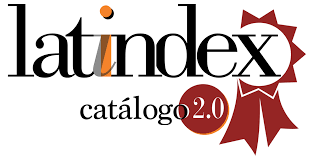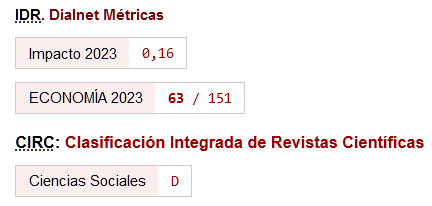Inspiring proposals to rethink economics and business from the perspective of the eco-social crisis
Keywords:
diverse economy, feminist economy, ecological economy, social and solidarity economy, social enterpriseAbstract
The evidences of the different eco-social crises that we live today are based on a set of beliefs about the economic science, such as the illusion of unlimited material growth, the self-regulation of markets, and their central role on sustaining social welfare through maximizing individual utility. These assumptions are commonly treated as if they were natural laws. The business institution is at the core of the implementation and reinforcement of these beliefs. An institution that, in the neoliberal context, has become central not only because of its role in the organization of our economic relations, but also of ourselves as subjects. We argue that such beliefs are not natural laws, but social constructions and, as such, they can be reviewed, questioned and changed. From this argument, our aim is to suggest a diversity of alternative modes of sociability and economic subjectivities. With that purpose, we examine the proposals of the paradigms of social and solidarity economy, ecological economics, feminist economics and the economy of the commons.
Downloads
References
Alonso, L.E. y Fernández, C.J. (2013): Los discursos del presente. Un análisis de los imaginarios sociales contemporáneos. Madrid: Siglo XXI.
Alonso, L.E. (2011): "¿Gobierno o gestión? El Estado remercantilizador y la crisis de lo social", Encrucijadas: Revista Crítica de Ciencias Sociales, 1, pp. 7-12.
Álvarez Cantalapiedra, S. (2014): "El poder de las empresas sobre la vida social", Papeles de Relaciones Ecosociales y Cambio Global, (127), pp. 5-11.
Battilana, J., D'Aunno, T. (2009): "Institutional work and the paradox of embedded agency". En Lawrance, T.B.; Suddaby, R. y Lecca, B. (eds), Institutional Work: Actors and Agency in Institutional Studies of Organizations. Cambridge: Cambridge University Press, pp. 31-58.
https://doi.org/10.1017/CBO9780511596605.002
Benería, L. (2018): "¿Qué es la economía feminista? ", Alternativas Económicas, (57), pp. 50-51.
Bocken, N. M.; Short, S. W.; Rana, P. y Evans, S. (2014): "A literature and practice review to develop sustainable business model archetypes", Journal of Cleaner Production, 65, pp. 42-56.
https://doi.org/10.1016/j.jclepro.2013.11.039
Bollier, D. (2014): Pensar desde los comunes. Una breve introducción, Madrid: Sursiendo-Traficantes de Sueños-Tinta limón-Cornucopia-Guerrilla Translation.
Boltansky, L. y Chiapello, E. (2002): El nuevo espíritu del capitalismo, Madrid: Akal.
Bourdieu, J. (1997): Razones prácticas: sobre la teoría de la acción, Barcelona: Anagrama.
Calle, A. (2015): "Economías para los bienes comunes. Relevancia y práctica". Dossieres EsF, 16, pp. 48-53.
Calle, A. y Casadevente, J.L. (2015): "Economías sociales y economías para los bienes comunes", Otra Economía, 9(16), pp. 44-68.
https://doi.org/10.4013/otra.2015.916.04
Carrero, G. (2018): "Mercados sociales: un instrumento para la generación de tejido productivo en el marco de un proyecto transformador de la economía", Dossieres EsF, 31, pp. 42-48.
Cortés, J.A. (2018): "De la naturaleza como Mercancía a la naturaleza como empresa. Políticas de conservación en tiempos de crisis y neoliberalismo". En Santamarina, B.; Coca, A. y Beltrán, O. (eds.). Antropología Ambiental. Conocimientos y prácticas locales a las puertas del Antropoceno, Barcelona: Icaria, pp. 99-116.
Costanza, R. (ed.) (1991): Ecological economics: The science and management of sustainability, Nueva York: Columbia University Press.
Crutzen P.J. (2006): "The 'Anthropocene'". En Ehlers E. y Krafft T. (eds), Earth System Science in the Anthropocene, Berlín: Springer, pp. 13-18.
https://doi.org/10.1007/3-540-26590-2_3
Dey, P. y Steyaert, C. (2012): "Social entrepreneurship: Critique and the radical enactment of the social", Social Enterprise Journal 8(2), pp.90-107
https://doi.org/10.1108/17508611211252828
Donaldson, T. y Walsh, J. P. (2015): "Toward a theory of business", Research in Organizational Behavior, 35, pp.181-207.
https://doi.org/10.1016/j.riob.2015.10.002
Foucault, M. (1980): Power/knowledge: selected interviews and other writings, 1972-1977, Nueva York: Pantheon Books.
Foucault, M. (2009): Nacimiento de la biopolítica. Curso en el College de France (1978-1979), Buenos Aires: Fondo de Cultura Económica.
Federicci, S. (2016): Caliban y la bruja. Mujeres, cuerpo y acumulación originaria, Madrid: Traficantes de Sueños.
Fraser, N. (2016): "Capitalism's Crisis of Care", Dissent, 63(4), pp.30-37.
https://doi.org/10.1353/dss.2016.0071
Gaiger, L.I. (2009): "Emprendimiento económico solidario", en Cattani, A.D.; Coraggio, J.L. y Laville, J.L. (eds.), Diccionario de la otra economía: lecturas sobre economía social. Buenos Aires: Altamira, pp. 184-193.
Garrow, E.E. y Hasenfeld, Y. (2014): "Social enterprises as an embodiment of a neoliberal welfare logic", American Behavioral Scientist, 58 (11), pp.1475-1493.
https://doi.org/10.1177/0002764214534674
Gibson-Graham, J. K. (2008): "Diverse economies: performative practices for other worlds", Progress in Human Geography, 32(5), pp. 613-632.
https://doi.org/10.1177/0309132508090821
Harvey, D. (2007): Breve historia del neoliberalismo, Madrid: Akal.
Harvey, D. (2012): Espacios de esperanza, Madrid: Akal.
Hintze, S. (2010): La política es un arma cargada de futuro: la economía social y solidaria en Brasil y Venezuela, Argentina: CLACSO.
Jessop, B. (1996): "Post-Fordism and the state". En Greve, B. (ed.), Comparative welfare systems, Londres: Palgrave Macmillan, pp. 165-183.
https://doi.org/10.1007/978-1-349-24791-2_10
Koch, M. (2006): Roads to post-fordism. Labour markets and social structures in Europe, Londres: Routledge.
Koch, M. (2012): Capitalism and Climate Change. Theoretical Discussion, Historical Development and Policy Responses, Londres: Palgrave MacMillan..
Laval, C. y Dardot, P. (2010): La nouvelle raison du monde: essai sur la société néoliberale, Paris: La Découverte.
https://doi.org/10.3917/dec.dardo.2010.01
Laval, C. y Dardot, P. (2015): Común. Ensayo sobre la revolución del siglo XXI, Barcelona: Gedisa.
Laville, J.L. (2009): "Definiciones e instituciones de la economía. Con Mauss y Polanyi hacia una teoría de la economía plural", En Coraggio, J.L. (org.), ¿Qué es lo económico? Argentina: CICCUS, pp. 1-41.
Max Neef, M. (1994): Desarrollo a escala humana: conceptos, aplicaciones y algunas reflexiones, Barcelona: Icaria Editorial.
Moruno, J. (2015): La fábrica del emprendedor: Trabajo y política en la empresa- mundo, Madrid: Akal
Naredo, J. M. (2010): Raíces económicas del deterioro ecológico y social. Madrid: Siglo XXI.
Narotzky, S. (2010): "La economía social: conceptos teóricos y economía real. Una perspectiva antropológica", comunicación del Congreso Internacional de Economía Social. Consulta el 2 de marzo de 2019 en: https://es.slideshare.net/slides_eoi/susana-narotzky-la-economa-social-conceptos-tericos-yeconoma-real.
Norgaard, R. (2013): "Escaping economism, escaping the econocene", en Schneidewind, U.; Santarius, T. y Humburg, A. (eds.), Economy of Sufficiency. Wuppertal: Wuppertal Institute for Climate, Environment and Energy, pp.44-52.
Norgaard, R.B. (1984): "Coevolutionary development potential", Land Economics, 60(2), pp.160-173.
https://doi.org/10.2307/3145970
Ostrom, E. (2014). El gobierno de los bienes comunes. La evolución de las instituciones de acción colectiva, Mexico: Siglo XXI.
Peredo, A.M. (2011): "Social entrepreneurship", en Dana, L.P. (ed.). World encyclopedia of entrepreneurship. Cheltenham: Edward Elgar, pp. 410-414.
https://doi.org/10.4337/9781849808453.00054
Pérez Orozco, A. (2011): "Crisis multidimensional y sostenibilidad de la vida", Investigaciones Feministas: papeles de estudios de mujeres, feministas y de género, 2, pp. 29-53.
https://doi.org/10.5209/rev_INFE.2011.v2.38603
Pérez Orozco, A. (2014): La subversión feminista de la economía. Aportes para un debate sobre el conflicto capital-vida, Madrid: Traficantes de Sueños
Prats, F.; Herrero, Y. y Torrego, A. (2016): La gran encrucijada. Sobre la crisis ecosocial y el cambio de ciclo histórico, Madrid: Libros en Acción.
Schwiter, K. (2013): "Neoliberal subjectivity-difference, free choice and individualised responsibility in the life plans of young adults in Switzerland". Geographica Helvetica, 68(3), pp.153-159.
https://doi.org/10.5194/gh-68-153-2013
Serrano, A. (2016): "Colonización política de los imaginarios del trabajo: La invención paradójica del 'emprendedor'", en Gil Calvo, E. (coord.), Sociólogos contra el economicismo, Madrid: Catarata, pp. 110-128.
Serrano A. y Fernández, J.C. (2018): "De la metáfora del mercado a la sinécdoque del emprendedor: la reconfiguración política del modelo referencial de trabajador" Cuadernos de Relaciones Laborales, 36(2), pp. 207-224.
https://doi.org/10.5209/CRLA.60694
Sousa Santos, B. y Rodríguez, C. (2011): "Introducción. Para ampliar el canon de la producción". En Sousa Santos, B. (coord.). Producir para vivir. Los caminos de la producción no capitalista, México: Fondo de Cultura Económica, pp. 15-62.
Steffen, W.; Richardson, K.; Rockström, J. y cols.. (2015): "Planetary boundaries: Guiding human development on a changing planet", Science, 347(6223), pp. 1259855-1/1259855-10.
https://doi.org/10.1126/science.1259855
Szeman, I. (2015): "Entrepreneurship as the new common sense", South Atlantic Quarterly, 114(3), 471-490.
https://doi.org/10.1215/00382876-3130701
Werner, K. (2015): "Performing economies of care in a New England time bank and buddhist community", en Roelvink, G.; St. Martin, K.; Gibson-Graham, J.K. (eds.), Making other worlds possible. Performing diverse economies. Minneapolis: University of Minnesota Press, pp. 72-97.
Downloads
Published
How to Cite
Issue
Section
License
This licence allows third parties to share (copy and redistribute the material in any medium or format) and adapt (remix, transform and create from the material for any purpose, including commercial purposes), provided that authorship and first publication in this journal (The Journal, DOI of the work) is acknowledged, a link to the licence is provided, and it is stated whether changes have been made to the work.







